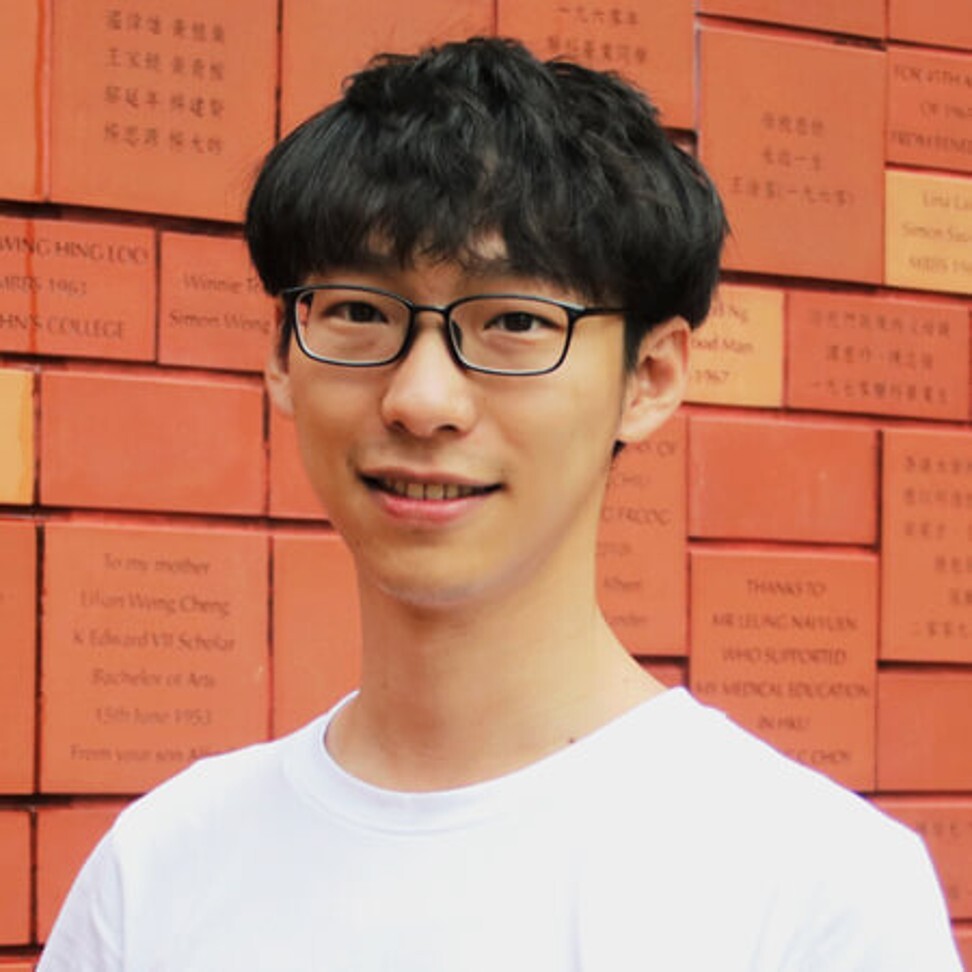
Fang Ran: the haunting case of the Hong Kong labour rights researcher held in China
- The HKU doctoral student has long had an interest in social issues on the mainland and had attracted the attention of state security personnel
- He did not seem worried about being questioned, according to his friends. But then he was detained
Fang Ran was not alarmed when his belongings, including his phone, computer and ID card, were confiscated by state security agents in southern China in June.
The 26-year-old doctoral student at the University of Hong Kong was a Communist Party member and had often been “invited to tea”, a euphemism for informal questioning, by security personnel.
This time seemed no different, friend Abner said. The Nanning agents returned Fang’s identity card and he carried on with his research. In late August, the agents told Fang to return to Nanning to pick up his computer and phone, said Abner, who declined to give his real name.
Then everything changed.
His detention has sent a chill through the labour rights community in Hong Kong, with few willing to comment and many wondering how one student could be accused of trying to overturn the state.
China is now EU’s biggest trading partner, an exchange complicated by labour rights and transatlantic tactics
Fang has long had an interest in social and political issues.
As a high school student in Nanning, Fang was the head of his school’s Launching Satellites Society, whose members were expected to “be brave, change society, push forward history” and “train their abilities to analyse and solve social problems”, according to a post he wrote on the Baidu Tieba social media platform when he was 16.
The society held seminars on social issues, published essays in their magazine and investigated social issues.
His work as the student society’s president helped him get into the top-tier Tsinghua University in Beijing to study sociology, according to EOL.cn, an education industry website in China.
Carl, a friend from his days as an undergraduate at Tsinghua, said Fang joined the party in his late teens because he thought the party was fighting for a classless society.
“He might have thought the Chinese Communist Party represented the work towards equality and liberation,” said Carl, who declined to give his full name.

00:41
Pelosi calls for US diplomatic boycott of 2022 Beijing Winter Olympics over human rights abuses
While at Tsinghua, Fang became one of the founders of the Research Association of Political Economics and Modern Capitalism, a small leftist student activist and study group, which Carl also joined.
Fang and Carl had similar views on current affairs and history and believed Marxism could be used to analyse history and power relationships in society to help what they saw as the oppressed – labourers and minority groups. It was a brand of Marxism not taught in Chinese textbooks, Carl said.
Fang went on to work as an intern at an NGO and social media sites focusing on labour relations.
In 2018, he became a full-time doctoral student at HKU’s sociology department, focusing on “labour empowerment” in mainland China, according to his university profile.
It is not known what his thesis topic is but his earlier research focused on migrant labourers from Hunan province who developed black lung while working in Shenzhen, according to his friends. He recorded the lives of the workers, lived with them and worked at factories in Shenzhen, Guangzhou and other areas in southern China.
“He’s an activist. A real, passionate activist,” Abner said.
“He takes action and the whole reason for his labour research was to actually do things. And he did; he was involved in some NGOs and weiquan [defending rights]. His research could only be an indirect reason [for his detention], but those actions are definitely prohibited by state security.”
Carl said that in the past the agents from Nanning would keep tabs on Fang but there was no great cause for concern.
“The agents would often ask Fang of his thoughts and what he saw in Hong Kong. Without naming anyone specifically, they warned him to steer clear of Hong Kong independence advocates,” Carl said.
Then came word of Fang’s detention. According to his friends, an official notice of the arrest was given to Fang’s father but the South China Morning Post could not independently verify the claims because the father declined to be interviewed.
He’s an activist. A real, passionate activist
Residential surveillance is a common form of detention where a person is held at a secret location usually without access to family or a lawyer for up to six months.
“I was very shocked. He didn’t do anything serious enough to warrant being accused of this offence. I’m also a bit upset because Fang Ran is very sensitive and a little fragile. I’m worried about his mental state,” said Li Xing, a friend based on the mainland.
Fang’s three thesis supervisors listed at the HKU Scholars Hub did not respond to a request for comment.
In a brief statement, the university said it “is aware of the matter and is actively looking into it”. Nanning public security could not be reached for comment.
Chinese labour rights activists detained as authorities try to shut down silicosis campaign
But for Jenny Chan, assistant professor of sociology and China studies at Hong Kong Polytechnic University, the “disappearance” makes the political risks for Hong Kong-based academics studying labour issues in China hauntingly real.
She said the arrest “opens important questions for rethinking, such as institutional protection for labour researchers and academic freedom”.
“It would indeed be terrifying if my own student was placed under surveillance and locked up incommunicado,” Chan said. “As a responsible teacher, I’m obligated to ensure the legitimate rights and interests of my students in the educational process.”
Mainland authorities have relentlessly targeted labour rights activists and their supporters, including leftist university students sympathetic to grass-roots struggles.
Fang’s detention also comes in the aftermath of the imposition of the national security law in Hong Kong.
Chan, who researches the plight of a new generation of Chinese migrant workers and mistreatment of vocational school student interns in mainland China, said that before the pandemic, she could still carry out low-profile field work on the mainland.
She said “movement-oriented groups” and labour researchers might face interrogations or other minor accusations linked to workers’ collective petitions or assemblies, such as public order disturbances or traffic offences.
“But these days, labour organisers tend to be more easily seen as targets of endangering national security or inciting state subversion on the mainland. Chinese leaders are very concerned about economic growth and political stability in the face of mounting domestic and international challenges,” she said.
“Anyone who educates and empowers workers to protect themselves from labour abuses as a coordinated group, I contend [their work] may be misinterpreted as an act to ‘motivate’ or ‘instigate’.
“And now it’s not just the safety issues of our interviewees that we need to think about but also the personal safety of the researchers.”
At least five labour rights activists arrested across China
Away from his studies, Fang is an avid karaoke singer and a fan of Jacky Cheung Hok-yau, one of Hong Kong’s most popular Canto-pop kings.
“He’d always drag me away to sing with him. It’s amazing – he’s soft-spoken, but when it comes to singing, his voice is so full,” Carl said.
“Fang Ran likes to talk and likes to laugh. He’s like a kid.
“[But] he talks straight … Whenever there’s something he doesn’t like, he’ll criticise unhesitatingly.
“I, more than anyone else, want Fang Ran to suffer less, so that he can be as he was when he comes out of detention,” Carl said.
“Some hurt cannot be healed quickly. I’ve seen what some friends become after they suffer.”



